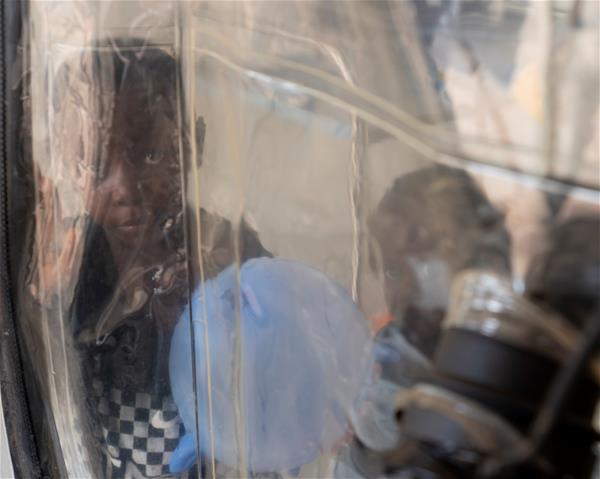Ethical issues in outbreaks and emergencies
Responses to epidemics, emergencies and disasters raise many ethical issues for the people involved, including frontline health workers, public health specialists, researchers, policy makers and the general public.
Public health emergencies present serious ethical challenges in the form of resource allocation, priority-setting, physical distancing, public health surveillance, health-care worker's rights and obligations to conduct of clinical trials. These in turn are complicated by the diverse health systems and unique cultural and socio-economic contexts of countries. Consequently, there is a great need for guidance to ensure ethical conduct of research, decision making in clinical care, and public health policymaking during such emergencies.
WHO takes a leadership role in the global ethics response to public health emergencies and works to ensure that ethics is embedded in the associated governance and oversight mechanisms. WHO develops guidelines and training materials on ethical issues arising in different types of epidemics, such as COVID-19, pandemic influenza, Ebola, and Zika. The organization supports its Member States in ethics capacity-building, and conducts training and workshops. Through its collaborative networks and outreach activities, WHO fosters communication and cooperation in the global ethics community to strengthen ethics response worldwide.
Publications
All →Key criteria for the ethical acceptability of controlled human infection studies during public health...
Controlled human infection studies (CHIS) involve the intentional infection of volunteers with pathogens, including those that cause epidemics or pandemics....
Social listening in infodemic management for public health emergencies: guidance on ethical considerations
This guidance document has been developed by the World Health Organization (WHO) to guide governments, organizations and individuals seeking advice on...
Emergency use of unproven clinical interventions outside clinical trials: ethical considerations
This document is intended to provide policy-makers, authorities in charge of the prevention and management of a public health emergency, such as ministries...
Ethics and adaptive platform trial design in public health emergencies: meeting report,18-19 July 2022,...
Platform trials using adaptive methods have played a key role in the research response to COVID-19. They raise important ethical issues, however,...
The aim of the document is to identify and articulate salient ethical considerations regarding mandatory vaccinations against COVID-19. This document updates...
Emergency Use Designation of COVID-19 candidate vaccines: Ethical considerations for current and future...
The conduct of COVID-19 vaccine trials in the context of a candidate vaccine being issued with Emergency Use Designation raises challenging ethical questions,...
Ethical considerations to guide the use of digital proximity tracking technologies for COVID-19 contact...
Digital proximity tracking technologies have been identified as a potential tool to support contact tracing for COVID-19. However, these technologies raise...
Infectious disease outbreaks are frequently characterized by scientific uncertainty, social and institutional disruption, and an overall climate of fear...
Ethics in epidemics, emergencies and disasters: research, surveillance and patient care
Epidemics, emergencies and disasters raise many ethical issues for the people involved, who include responders, public health specialists and policy-makers....

.jpg?sfvrsn=5b15b436_8)

.jpg?sfvrsn=6453fc8_6)
/research-for-health-(rfh)/health-ethics-governance-(heg)/cdc-covid-unsplash.jpg?sfvrsn=6ab5f5ff_5)